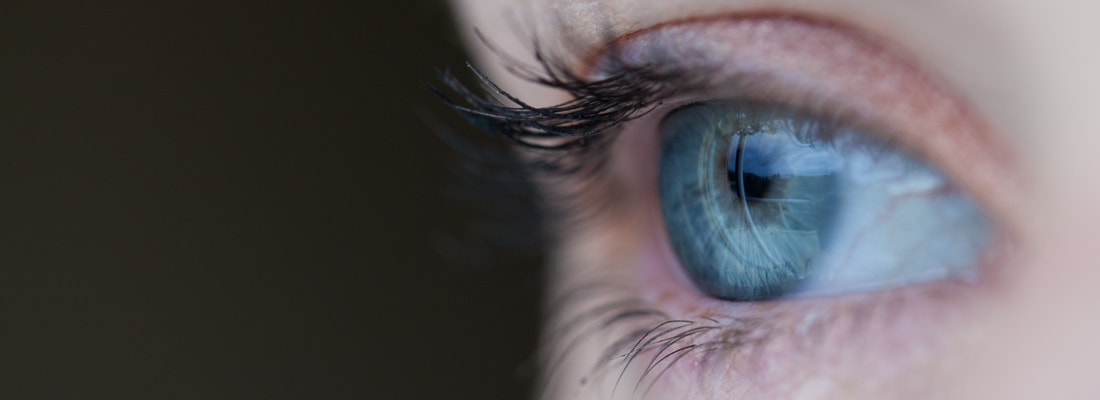|
Do you struggle to see what's in front of you? Is it a challenge to read signs? Does your child have difficult reading the board in school? If you answered yes to any of these questions, you or your child may need a comprehensive vision examination at Family Eye Care in Geneva, IL. Learn About Comprehensive Vision ExamsThe primary purpose of comprehensive vision examinations is to determine whether you need corrective lenses and if so, what prescription you need. These examinations are not medical exams, though they do sometimes screen for basic ocular diseases. During our comprehensive vision exams we test the sharpness of your vision, the range of eye movement, and your depth perception. Our tests generally also test for color blindness. The key component of our comprehensive vision exam is a refraction test, which measures farsightedness, nearsightedness, astigmatism, and presbyopia. After this test, a precise prescription is determined. With a new prescription, you can update your glasses, prescription sunglasses, and contacts. The prescription is valid for 12 months from the date of the exam. Discover Our ServicesWe are committed to providing comprehensive vision care to you and your entire family. Our staff create a friendly and inviting atmosphere to make our office comfortable for you and your kids.
Our optometrists recognize that everyone may need eye care, so we created our own vision insurance plans to make our comprehensive vision exams more affordable. We even offer Medicare so that elderly patients can receive the eye care that they need. Our family-owned optometric practice is dedicated to providing the high-quality and personal care that you and your family need. We hope you feel relaxed and comfortable coming to us with any eye care needs. Schedule your comprehensive vision examination with Family Eye Care in Geneva, IL, today through our online form or by calling (630) 377-2020.
3 Comments
Need Glasses? 2 Reasons not to Buy OnlineThese days, you can buy just about anything online, including eyeglasses. Instead of visiting a store in person and sorting through hundreds of frame options, you might be able to take advantage of your laptop's camera to virtually try on frames that meet your criteria. While shopping for glasses online might be convenient, that simplicity can come with a price - your vision and comfort. Learn why you should meet with an eye doctor in person and skip the online shopping. 1. Buying Online Might Mean Skipping an ExamSometimes, people opt for online glasses shopping because it means that they don't need a current glasses prescription. Instead of visiting their doctor to have an eye exam, they might shuffle through old papers to find their numbers from a few years back, and order online based on that information. However, meeting with your eye doctor regularly is crucial, especially if you have already been diagnosed with vision problems. Because doctors check for issues like degenerative vision problems, glaucoma, eye infections, color blindness, and even retinal detachment, skipping your exam in favor of an online ordering platform could cause you to develop serious issues that could have been prevented. For instance, your vision may suffer because of a lingering eye infection or you may have floaters because of an impending retinal detachment. An eye doctor can catch these issues and take measures to prevent them from causing permanent vision damage. This can't happen if you skip your eye exam. 2. Increased Risk of Incorrect PrescriptionsFabricating eyeglasses is more complicated than punching in a few numbers. In addition to using your exam results to order the right pair of lenses, each pair of glasses also sits slightly differently on your face, which is why professionals measure your pupillary distance before creating a pair of glasses. Your vision is clearest when the focal point of glasses sits directly in front of your pupils, but unfortunately, pupillary distance can be tricky to measure on your own. Oftentimes, online ordering platforms ask people to measure their own distance by making marks on their current glasses with dry erase markers or having a friend use a measuring tape to measure from eye to eye. However, getting the number wrong, even by a few millimeters, can significantly alter your prescription. An incorrect prescription can cause issues like headaches, blurred vision, vertigo, and even nausea. Unfortunately, many people who order their glasses online end up with an incorrect prescription. In fact, one study showed that 44.8% of glasses ordered online contained incorrect prescriptions. On the other hand, when you visit your eye doctor in person, your doctor will carefully prescribe and check your prescription. If you have problems with your glasses after they are fabricated, doctors can verify your pupillary distance and prescription and make a new set if necessary. Additionally, opticians can help you to know which lenses will tackle your common vision complaints. For example, if you are severely nearsighted and are nervous about heavy glasses, they might suggest polycarbonate or high-index lenses. If you struggle with night vision, anti-reflective coatings might be best to minimize glare. By working with professionals, you can ensure that your glasses contain an accurate prescription and lenses that will keep you comfortable. If you are thinking about investing in a new pair of eyeglasses, don't hesitate to reach out to the professionals. At Family Eye Care, we are dedicated to providing each and every one of our customers with the best service possible. In addition to helping with preventative vision exams and proactive treatments, our experienced, certified eye doctors can also help with vision-correction surgery. Stop by today to learn more. Have Diabetes? 4 Ways to Take Care of Your EyesWhen you have diabetes, you need to be mindful of all aspects of your health, including your eye health. As someone with diabetes, your risk of developing specific eye diseases - such as glaucoma, cataracts, diabetic retinopathy, and diabetic macular edema - is increased. You can lower your risk of contracting one of the many eye complications associated with diabetes by taking proper care of your body. 1. Get an Eye Exam Every YearWhen you have diabetes, you need to make sure that you closely monitor your eye health. Many of the eye conditions listed above often do not have noticeable symptoms that you can detect on your own in the early stages. That is why it is so important to have your eye health monitored by an eye doctor when you have diabetes. With diabetes, you need to get an eye checkup at least once a year. When you go to the eye doctor, you need to make sure that they know that you have diabetes. The doctor will dilate your eyes to examine the optic nerve and retina for damage. An eye doctor can detect damage and changes in your eyes before you notice a change to your vision and can start intervention and treatment to protect your eyesight. 2. Keep Your Blood Sugar Under ControlYou need to monitor your blood sugar on a daily basis. If you don't monitor your blood sugar over time, you may not realize that you are at risk for hyperglycemia. Hyperglycemia is the buildup of sugar in your body, which can lead to serious complications for your body, including your eyes. Hyperglycemia can damage the blood vessels in your eyes and can lead to blurred vision as well. You can manage your blood sugar by logging the food that you eat. There are lots of phone apps that make this task easier. You should be monitoring your blood sugar with a blood sugar monitoring and injecting insulin if necessary. You need to work with your doctor to make sure that your blood sugar is under control at all times. 3. Ditch the TobaccoNext, you need to ditch the tobacco if you smoke or vape. It is well-known that consuming tobacco can contribute to both lung cancer and heart disease. However, many people don't realize that smoking can have a negative impact on your eye health as well. Smoking can increase your chance of contracting a wide variety of diseases, which are often the same ones that you have an increased risk of contracting due to diabetes, such as cataracts, glaucoma, and diabetic retinopathy. Smoking while having diabetes increases your risk of contracting a damaging eye disease. That is why it is important to start a smoking cessation program if you also have diabetes. You can work a program on your own, or you can work with a medical professional to help you stop smoking. A doctor can help you manage your withdrawal symptoms and help you establish healthy habits that will save your eyes and your overall health. 4. Monitor Your Cholesterol & Blood PressureFinally, you need to also monitor your cholesterol as well as your blood pressure. On their own, high cholesterol as well as high blood pressure can cause eye health issues. Combined with diabetes, high cholesterol and blood pressure can aggregate and worsen eye health issues. You should aim to keep your LDL cholesterol readings lower than 100 mg/dL. It is a good idea to keep it under 70 mg/dL when you have other health conditions at play as well. High blood pressure is damaging to your eyes due to all the blood vessels that flow to the retina. You want your blood pressure to fall within the ideal range, which is from 120/80 to 90/60. You can manage both your blood pressure and cholesterol via exercise and healthy eating, which are habits you should already be engaging in to control your diabetes. To protect your eye health when you have diabetes, you need to make sure that you keep your blood sugar, cholesterol, and blood pressure readings low and that you ditch the tobacco. Please contact us at Family Eye Care to set up your annual eye exam. We will work with you and your doctors to ensure your eye health is monitored and protected against diabetic eye conditions. |
Archives
April 2020
Categories |



 RSS Feed
RSS Feed